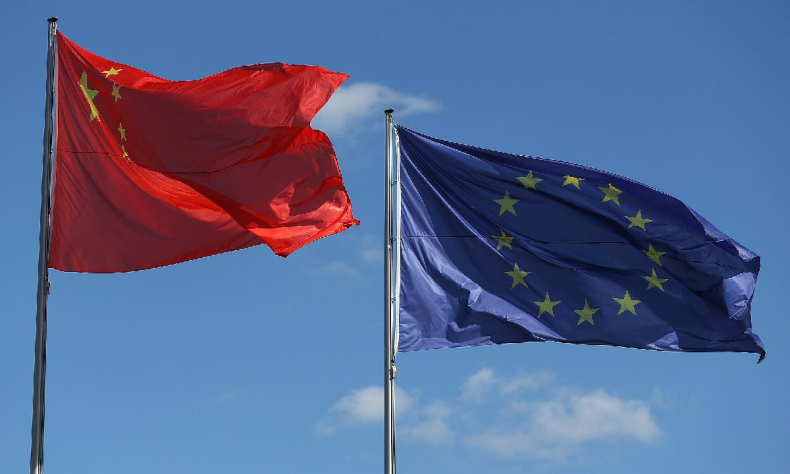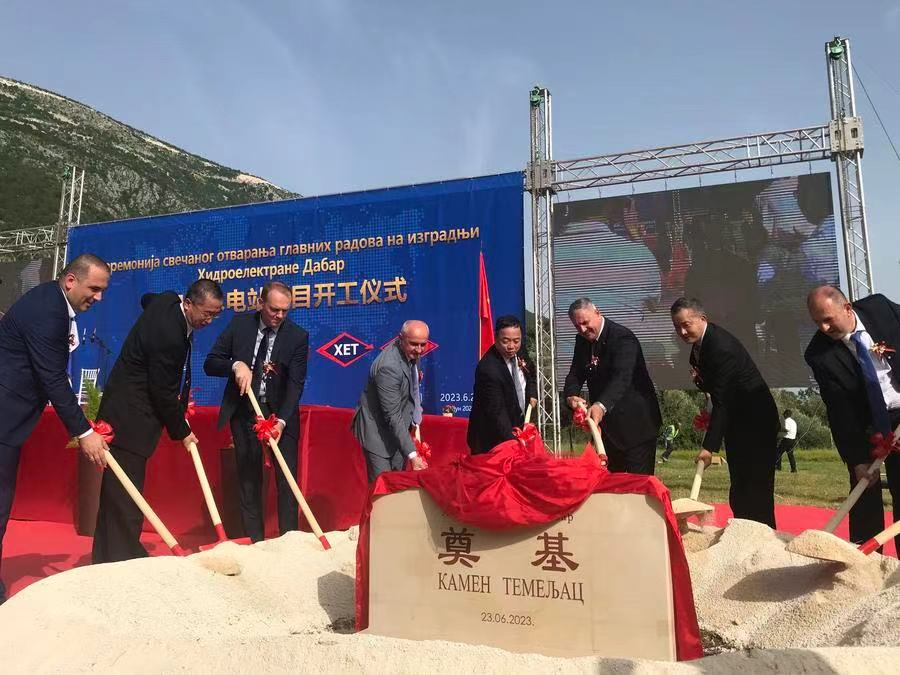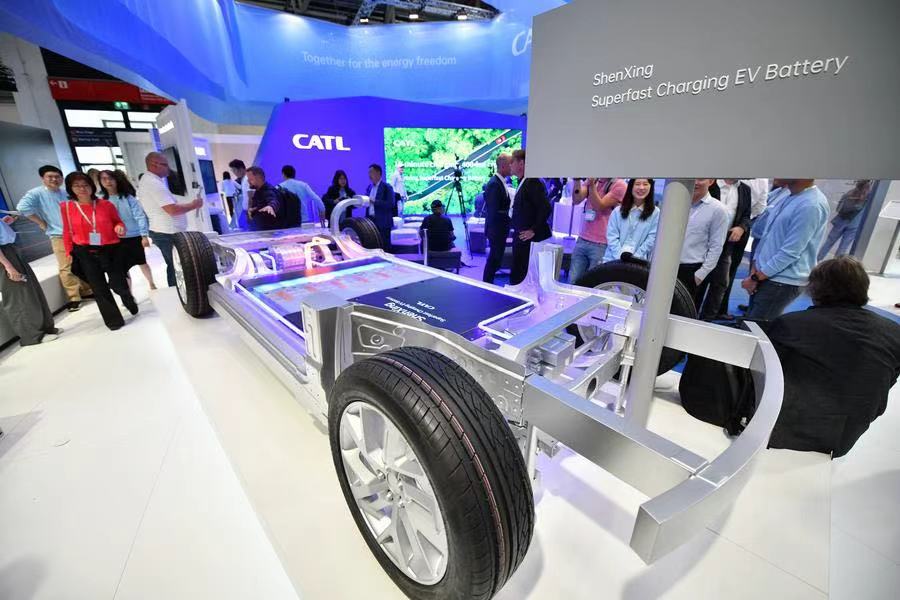Europe at the Crossroads

In reality, China is a force for peace, progress, stability and sustainability, and Europe would benefit enormously from taking up the offer of upgraded cooperation in trade, investment, green development, AI and more.
The establishment of bilateral ties between China and the European Economic Community, the precursor of the European Union (EU), on May 6, 1975, was a pivotal moment in modern history. Since that time, the China-Europe relationship has been among the most important in global politics.
From the start, both sides had a huge amount to gain from the relationship. For China, Europe promised to be a valuable partner in facilitating access to Western technology and capital, thereby supporting China’s Four Modernizations (in agriculture, industry, defense and science and technology). As China became increasingly integrated into the global economy, Europe provided much-needed investment as well as being a major export market for Chinese manufactured goods.
Geopolitically, China was keen to diversify its international relationships, and particularly to build strong ties with countries in what Mao Zedong theorized as the “intermediate zone,” recognizing that both the Global South and the advanced countries of Europe had cause to assert their sovereignty and reject domination.
Indeed, Mao’s comments from August 1954, in discussion with a delegation from Britain’s Labour Party, are resonant today: “The objective of the U.S. is to occupy the countries in this vast intermediate zone, bully them, control their economies, establish military bases on their territory, and see to it that they are increasingly weakened.”
In the ensuing half-century, trade between China and the EU has increased by a factor of 300 and is now approaching $800 billion annually. European companies have gained access to one of the world’s largest and fastest-growing markets, and investors have enjoyed very healthy returns.
China-Europe cooperation has moved well beyond economics. As Foreign Ministry Spokesperson Lin Jian pointed out recently, the two countries “have conducted productive multilateral coordination and cooperation in the response to climate change and other fields.” Such cooperation “has not only delivered tangible benefits to the nearly 2 billion people of both sides but also made important contributions to world stability and prosperity.”
Although China and the EU have different cultures, histories and political systems, over the course of 50 years the two sides have managed to build a powerfully symbiotic relationship that has contributed to prosperity and enriched the lives of hundreds of millions of people on both ends of the Eurasian supercontinent.

Europe in the ‘New Cold War’
Over the last few years, however, the EU has come under pressure to “pick a side” between China and the U.S., as part of the U.S.-led “New Cold War” on China. Starting with the Obama-Clinton “Pivot to Asia” in 2011, the U.S. has pursued increasingly hostile policies toward China with a view to suppressing its rise, and has sought to draw Europe into its strategic camp.
This has put Europe in a difficult position. The U.S. dollar is central to the global economy, and Wall Street has the ability to punish recalcitrant economies with fairly severe punishment. Meanwhile, the countries of Western Europe still benefit to some degree from an imperialist world system held in place largely by the U.S., with its outsized military budget, its hundreds of overseas military bases and elaborate system of troop and weapon deployments around the world.
As such, faced with the choice of embracing the multipolar trajectory or seeking shelter under an increasingly leaky U.S. hegemonic umbrella, Europe has tended toward the latter. Santiago Zabala and Claudio Gallo, writing in Al Jazeera on July 20, observe that Europe’s “strategic reflex” is to side with the U.S., even though “that reflex, born of history, is increasingly out of step with Europe’s long-term interests.”
Since 2019, the European Commission—the primary executive arm of the EU—has labelled China as a “systemic rival.” The EU has also consistently parroted Washington’s anti-China slanders in relation to Xinjiang Autonomous Region and Hong Kong Special Administrative Region, on which basis it has imposed various sanctions against China.
The Comprehensive Agreement on Investment, intended to drive a substantial deepening of trade and investment between China and Europe, was first proposed in 2013, and its text was finalized by the end of 2020. However, nearly five years later, it remains unratified as a result of intense pressure from Washington.
Several European countries have acceded to U.S. demands to remove Huawei from their network infrastructure. Meanwhile, the EU last year imposed tariffs of up to 35 percent on Chinese electric vehicles, and has launched numerous investigations into Chinese subsidies, claiming that these distort competition in the EU market.
Most recently, U.S. President Donald Trump has launched a global tariff war, one of the principal goals of which is to blackmail Europe (and other parts of the world) into “decoupling” from China.
Time for a reset
Hostility to China is not serving the people of Europe well. China has a middle-income population of around 500 million that represents a highly attractive market for European goods and services. Meanwhile tariffs on Chinese green product lines such as solar panels, electric vehicles and batteries are totally counterproductive in terms of the EU’s aspiration to be a global leader on environmental sustainability. As a 2024 article in The Economist put it: “If China wants to spend taxpayers’ money subsidizing global consumers and speeding up the energy transition, the best response is to welcome it.”

It is high time that European countries started to exercise the “strategic autonomy” they sometimes talk about and make decisions based on the needs of their own populations, which are calling out for peace, prosperity and a sustainable future. This means rejecting the U.S.’ hegemonic designs and engaging with China as an equal.
Some small steps in the right direction were taken at the 25th EU-China Summit, which took place in Beijing on July 24.
Chinese Premier Li Qiang co-chaired the summit with European Council President António Costa and European Commission President Ursula von der Leyen.
Before the summit during his meeting with the two European leaders, Chinese President Xi Jinping called for China and the EU, both important players in the international community, to keep their bilateral relationship growing in the right direction and work together to usher it into an even brighter next 50 years.
Xi pointed out that China’s high-quality development provides valuable new opportunities for European countries, and called for heightened cooperation in green development, digital technology and mutual investment.
The summit yielded some positive results, most notably in the form of a joint statement on strengthening China-EU cooperation on climate change. The two sides also reached agreement on expediting
Chinese exports of rare earth metals, which have slowed down in recent months due to the U.S.’ tariff war.
Von der Leyen affirmed that Europe has no intention of “decoupling” from China and that it welcomes Chinese companies to do business in Europe. However, she swiftly contradicted herself at a press conference following the summit, threatening that the European market would be closed to Chinese goods unless China takes action on its putative “overcapacity.” She went further by accusing China of supporting Russia in Ukraine, insisting that “how China continues to interact with Putin’s war will be a determining factor for our ongoing relations.”
Assigning a portion of the blame to China for the war in Ukraine is manifestly absurd. The conflict very specifically serves U.S. interests while wreaking havoc on living standards in Europe. China, meanwhile, has been entirely consistent in opposing war and in putting forward credible proposals for peace. China has been playing a constructive role in striving for peaceful settlement of the crisis.
In reality, China is a force for peace, progress, stability and sustainability, and Europe would benefit enormously from taking up the offer of upgraded cooperation in trade, investment, green development, AI and more.
The author is an activist, writer, independent political commentator from London. He is also the author of The End of the Beginning: Lessons of the Soviet Collapse (2019) and The East Is Still Red: Chinese Socialism in the 21st Century (2023).
 Facebook
Facebook
 Twitter
Twitter
 Linkedin
Linkedin
 Google +
Google +










